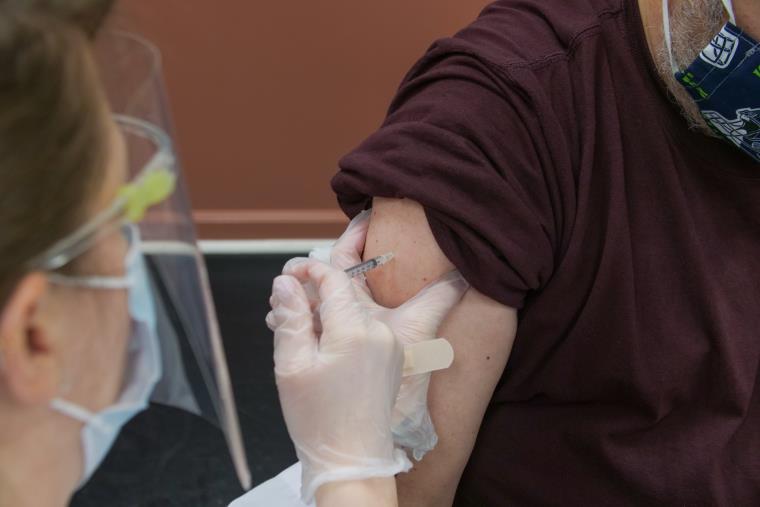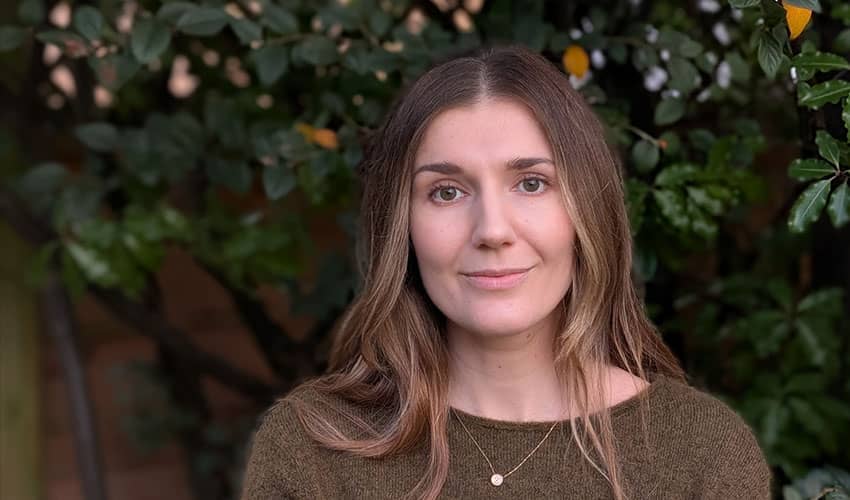Encouraging vaccination uptake through public health messaging in pandemics review

A rapid review of studies looking at how the public respond to health messages encouraging vaccination in a pandemic, has found there’s room for improvement when it comes to achieving uptake.
Scientists have made significant, rapid breakthroughs to protect communities against Covid, however, there is concern that vaccine hesitancy could hugely impact vaccination efforts.
UWE Bristol Psychology Senior Lecturer Elizabeth Jenkinson is part of a group who undertook the review to understand public responses to health messages encouraging vaccination against infectious diseases during pandemics to inform future successful promotional campaigns and communications.
She said: “Public health teams need to understand how readily the public responds to different kinds of vaccination messages in order to inform successful campaigns which encourage the uptake of new vaccines as they become available.”
The aim of the review was to identify and appraise evidence which evaluated the effectiveness of public health messaging in encouraging vaccination against infectious diseases in a pandemic or epidemic. It considered a wide range of messages delivered across all mediums such as emails, letters, text messages, television broadcasts, newspaper articles and mass media campaigns.
Elizabeth said: “Our review suggests that messages need to be credible, use community-wide outreach and frame risk appropriately”
“It is important that public health teams ensure messages are tailored to be personally relevant, short clear, use an appropriate message, and are delivered in language that the target audience can understand. This can be achieved by co-designing messages alongside the communities they are targeting.”
Research has shown a variety of psychological factors are associated with vaccine hesitancy, such as a lack of understanding about eligibility, concern over side effects, beliefs that the vaccination is not effective, perceptions of not being at sufficient risk, being against vaccines in principle, and not having the time.
Elizabeth explained: “How messages are framed can have an impact on intentions to vaccinate. Messages should address the information needs of target populations, use credible sources and be clear about what is known about vaccines without over-emphasising the health benefits of vaccination.”
The findings of the rapid review indicate that ongoing and high-quality evaluations of public health campaigns to promote vaccination during a pandemic are needed to inform future communication strategies for promoting vaccination uptake. Further research is required to make clear conclusions regarding the most effective medium and the intensity of delivery of messaging to have the biggest impact.
Elizabeth concluded: “Future campaigns should draw on the rapidly-emerging evidence on what works in promoting vaccination intention and uptake during the current pandemic, engage target populations in their design and highlight the benefits of vaccination to society as a whole, not just the individual”.
Summary from Evidence Aid.
Related news

16 February 2026
UWE Bristol researchers awarded grant to explore impact of asset recovery on offenders
UWE Bristol academics have been awarded funding to explore of the impact of asset recovery on deterring offender behaviour and disrupting crime networks.

10 February 2026
Work by UWE Bristol lecturer features in Government’s National Cancer Plan
Work by a UWE Bristol academic has been included in the Government’s National Cancer Plan.

23 January 2026
On-demand minibus services beneficial in rural areas but face financial challenges, trials suggest
Trials of ‘demand responsive transport’ minibus services boosted connectivity for people in rural and suburban areas, according to a new report produced by UWE Bristol researchers.

18 December 2025
UWE Bristol professor appointed National Institute for Health and Care Excellence CEO
Jonathan Benger CBE, Professor of Emergency Care at UWE Bristol, has been appointed as the new chief executive officer of the National Institute for Health and Care Excellence (NICE).

17 December 2025
Findings revealed from first UK study into experiences of mothers who are survivors of rape pregnancy
UWE Bristol academics have revealed the findings of the first UK-based study of the experiences of mothers who are survivors of rape pregnancy.

11 December 2025
Social media influencer work is far more demanding than it looks, research finds
A study exploring the mental health impacts of social media influencer work has revealed that life online is far more demanding than it appears.

25 November 2025
UWE Bristol experts join film Q&A exploring music and melodrama
Academics will take part in the Cary Comes Home Festival, with a post-screening Q&A exploring music, melodrama and emotional storytelling in classic cinema.

17 November 2025
Urgent reform needed to support ambulance-delivered end of life care, study finds
More than three quarters (78 per cent) of paramedics sometimes fear doing the wrong thing when caring for people in the last year of life, new research has found.

13 November 2025
Bristol’s screen industry experiences “boom-and-bust cycle” after post-pandemic recovery, new research from UWE Bristol finds
New research from UWE Bristol provides detailed insight into Bristol's screen sector.

13 November 2025
New AI research to revolutionise animal welfare
A UWE Bristol research project will combine behavioural science and AI to create technology that understands not only what animals do, but how they feel.

10 November 2025
Lessons from Low Traffic Neighbourhoods will drive better public engagement, study finds
Lessons from Low Traffic Neighbourhoods have informed a new toolkit to improve engagement with the public on challenging local street issues.

06 November 2025
First-of-its-kind study aims to help more people spend their final days at home
A new study will explore how architectural design could support end-of-life care in domestic settings.






